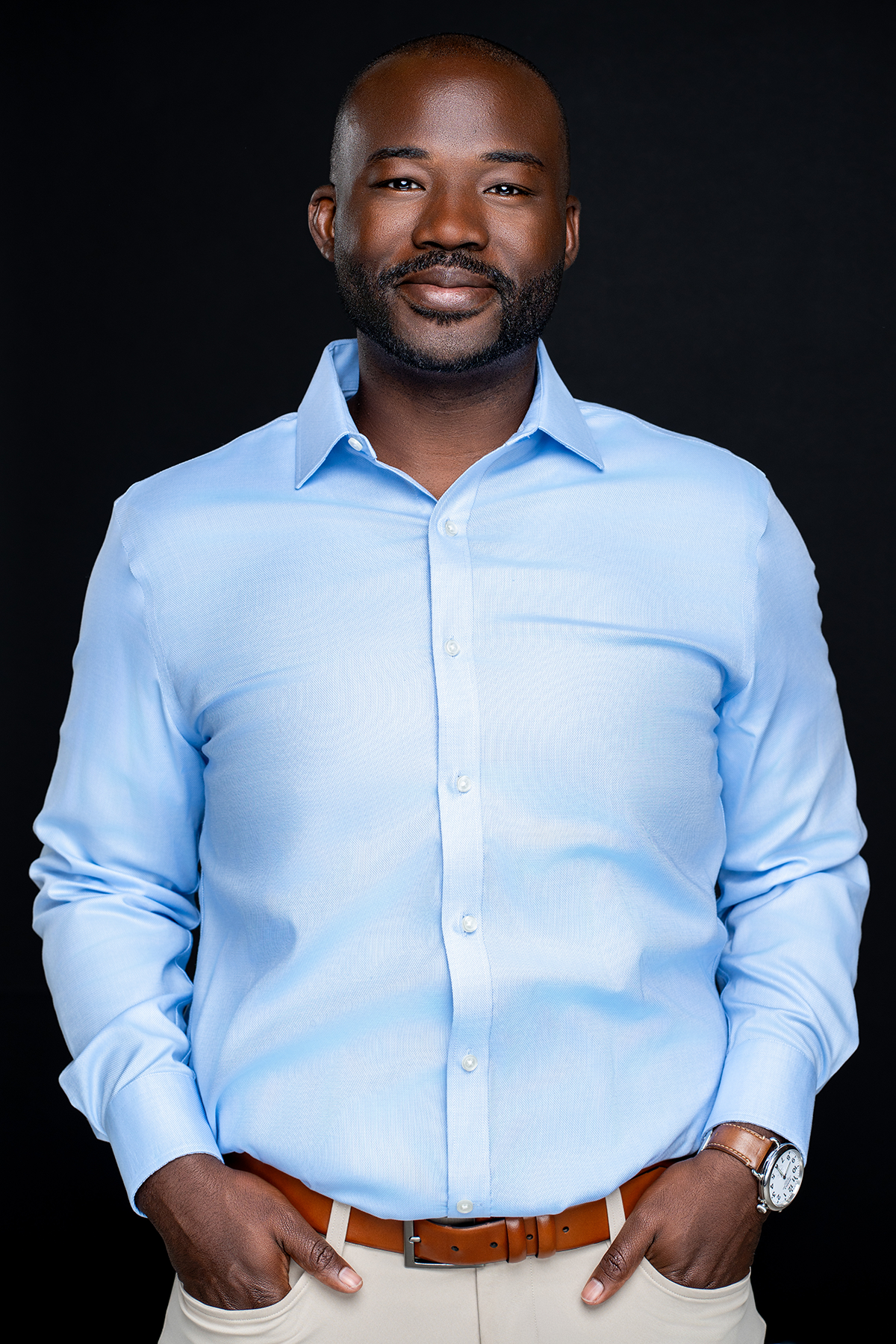 September 3, 2025
September 3, 2025
Lisa Lopez Snyder
Anton Johnson, ’14 BS, ’16 MHA, says he didn’t always first envision a career as a health care administrator. He wanted to be a provider of health care — a neurosurgeon to be exact.
Fast forward to his freshman year at The Ohio State University, where as a health sciences major in the School of Rehabilitation and Health Sciences (HRS), Johnson was pre-med. He soon realized that medical school was not what he desired, but rather a role where he could use his emerging leadership skills in an industry that meets people at their most vulnerable moments. He then realigned his focus towards getting a Master of Health Administration degree from the College of Public Health’s Division of Health Services Management and Policy.
Today, Johnson is interim chief executive officer and chief operating officer of Lower Lights Christian Health Center, a Federally Qualified Health Center (FQHC) and 501(c)(3) non-profit, providing health care services to over 16,000 residents regardless of ability to pay at seven locations throughout Central Ohio.
It’s an exciting challenge, he says, one built on a career of leadership roles in a variety of health care settings and responsibilities.
Leading growth
In his early years, while a graduate research associate from 2014 to 2016 at the Ohio State Center for Clinical and Translational Science, Johnson created, founded and led an annual TEDx-style scientific conference with 300 attendees and nationally recognized speakers promoting departmental services.
In 2015, as an administrative resident at Licking County Memorial Health System, his study to assess primary care physician reach led to recommendations to senior hospital leaders to increase access to care countywide. A year later, he served in various positions within OhioHealth’s Riverside Methodist Hospital. From 2022 to 2023, he was director of the health system’s primary and ambulatory care service line, leading the organization’s growth strategies focused on business planning, program development and physician engagement across 124 practices.
Today at Lower Lights, where Johnson oversees a staff of over 200 medical professionals and staff, he says that the health center’s focus remains the same as other providers: ensuring that the organization provides high quality care in ways that meet patients “where they’re at.”
“For instance, people expect ease and expect their health care to match the same experience that they get from their bank and their gym and from all the other platforms and industries that we interact with every day,” he says.
Telehealth, remote work and artificial intelligence (AI) continue to challenge providers to think about how they provide care, he says. He is quick to add that while AI can do many things, it can’t do the work of “humans relating to other humans. That's at the heart of what we do in this field.”
His goal now at Lower Lights: Expand and grow the service area to reach more patients who quality for FQHC care while providing value-based care.
Listening lesson for leaders
Addressing these challenges means health care leaders need to listen to their various clinical and administrative colleagues, and to champion those individuals, Johnson says.
The product of that work can be incredibly satisfying, he says. And personally, for him, it’s an effort that came full circle as he recalls when his father was in the ICU at OhioHealth last summer.
“The doctor was talking to him about post-ICU syndrome and how they have a clinic there for long-stay ICU patients to deal with the psychological and physical remnants of what can be an incredibly traumatic experience,” Johnson says.
As his father and the doctor spoke, Johnson shared that he had helped start that program when he was an administrative fellow at OhioHealth.
To know that many post-ICU patients were benefiting from a program like that was really significant, he says. “It happened because we listened to what clinicians in the ICU space were saying was needed. So, it was awesome to be able to champion a provider's idea and help bring that to life.”
This fall semester, Johnson is having another full circle moment. He is back in the classroom, but this time, teaching an HRS course as an adjunct: Management Principles for Health Care Professionals.
“I’m looking forward to helping students interested in the field to know what opportunities are out there.” Plus, he adds, it’s really exciting to be back — “where it all started.”
